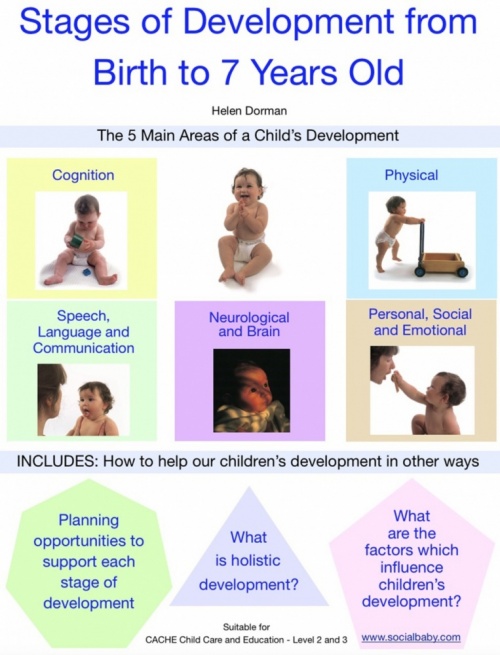CognitionThe Stages and Sequences of Cognitive Development from Birth to 7 Years Old Cognitive development or development of the mind, is the range of skills needed to make up human intelligence. It is this mental ability that enables us to process, sort, to reason and understand information, in order for us to solve problems. Our ability to learn, concentrate our attention, use perception and remember information also enables to us to use language to communicate our thoughts and ideas, and symbolise, to be creative and imaginative. These are all affected by any previous experiences, knowledge, and by our emotional state at the time. Newborn babies are born with primitive reflexes which are responses to specific stimuli – swallowing and sucking, rooting, grasping, stepping, startle, asymmetric tonic neck and falling (moro) reflex, which are innate for survival. Coupled with their 5 senses - sight, smell, sound, taste and touch, help them to relay back information they experience to the brain where it is processed, enabling them learn and make sense about the world in which they live. | At Birth | Recognise a face-shaped object Copy facial expressions – ‘O’ shapes and tongue protrusions, known as ‘pre-speech’ (Colwyn Trevarthen) Turn to a familiar voice Track a sound, high contrast object, or a face Turn to smell of mother’s breast Show likes and dislikes through cues, facial expressions, cooing crying Can show pleasure with immature smile Develops basic concepts e.g. feeling of hunger, and then cries to get fed Explores using senses and own movements | | | | For More.... download for £5.99 

|